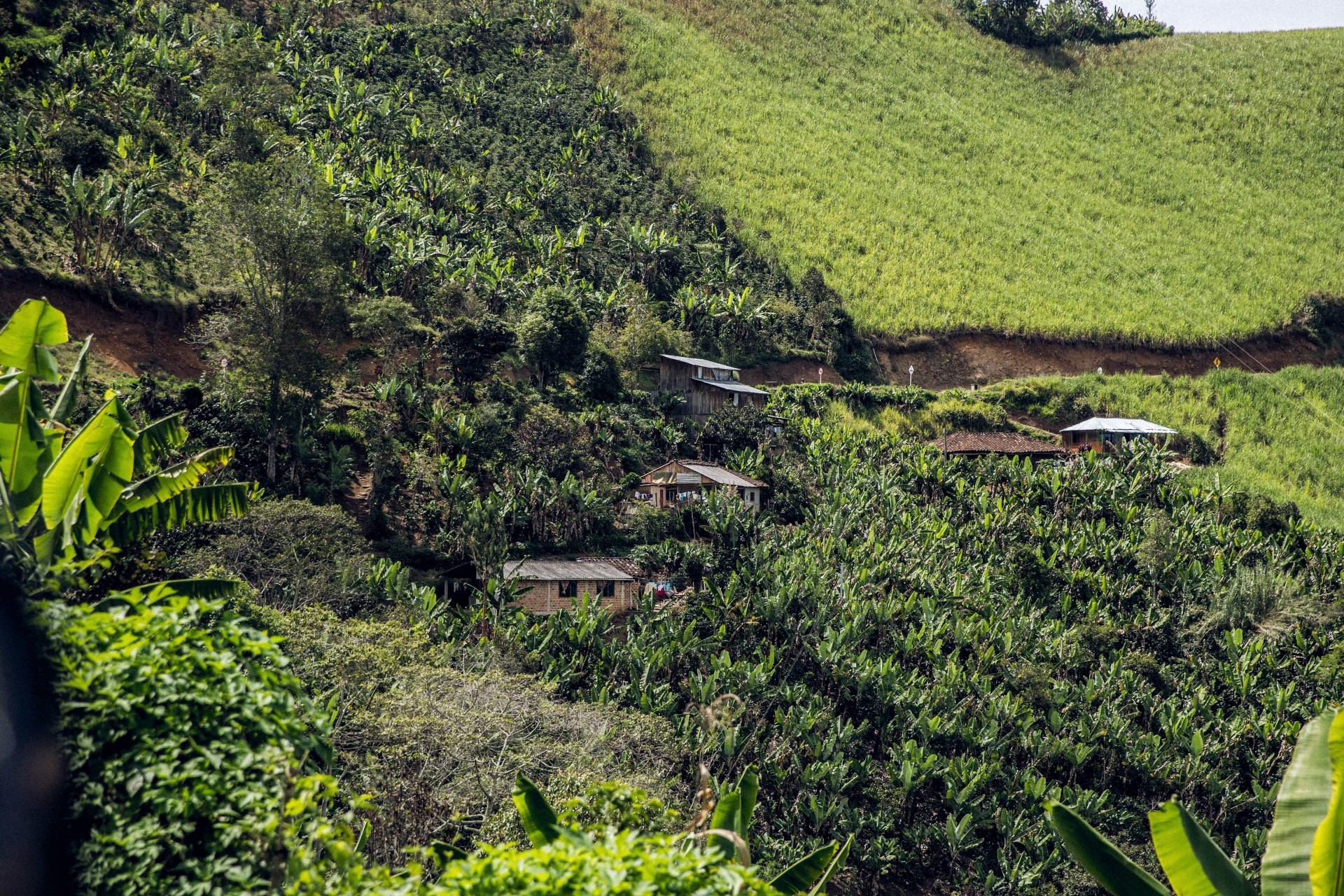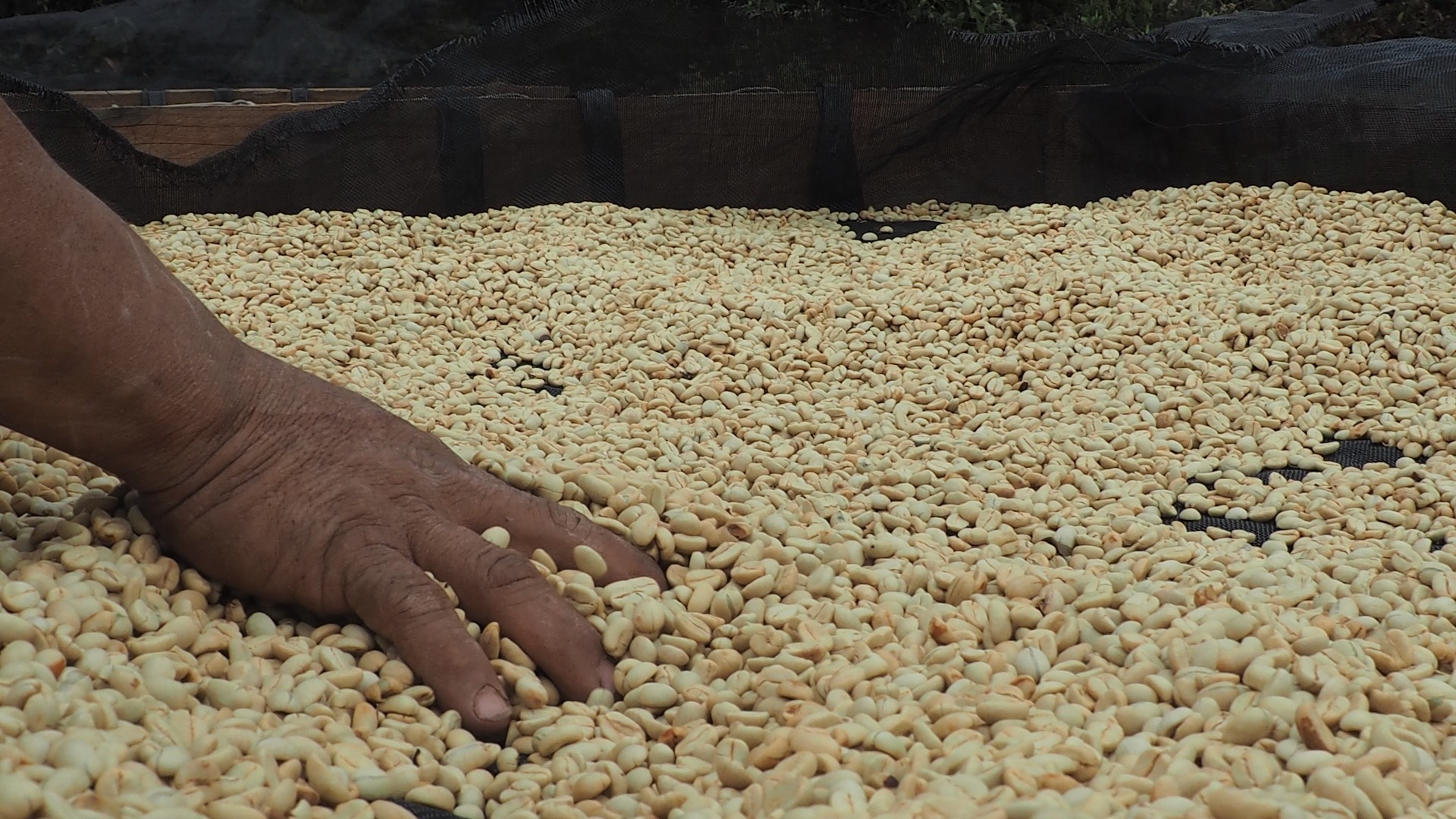Colombia Narino Portillo Narvaez-Romo Romo Blend GrainPro
Bags 0
Warehouses Oakland
Flavor Profile Pear, caramel, milk chocolate, creamy
Out of stock
About this coffee
Grower
Eduard Julio Portillo Narvaez & Erlinto Guillermo Romo Romo
Altitude
1800-1900 masl
Variety
Castillo
Soil
Volcanic loam
Region
Ancuya, Nariño, Colombia
Process
Fully washed and dried inside solar dryers that provide protection from the rain
Harvest
April - July
Certification
Conventional
Coffee Background
Ancuya is a municipality perched on the western slope of the formidable Galeras stratovolcano, a central fixture in this part of the Nariño department and whose continuous activity, documented since the 16th century, plays a significant role in the region’s terroir. Here in Colombia’s southern Andes the landscape seems to explode outward in scale compared to the tightly-wound ridgelines of Huila, or the plateaus of Cauca; slopes of farmlands seem to stretch to the sky and the valleys seem to have no bottom.
And coffee, as you would expect in these conditions, is absolutely thriving. Thanks to fertile volcanic soils, intense sunshine, wide diurnal temperature swings, and young, productive cultivars in place, farmers like Eduard Julio Portillo Narvaez and Erlinto Guillermo Romo Romo are creating some immensely delicious coffees. This microlot is a combination of both producers, who farm near one another outside the town of Ancuya in the remote communities of Yanancha and Chorillo. Both Srs Portillo Narvaez and Romo Romo are growing Castillo in a single hectare of coffee each. Combined, the final blend is decadent and crisp with butterscotch sugars, ripe pear, tangy acids and the tactile of rich drinking chocolate.
Sr. Portillo Narvaez is the newer of the two to coffee, having planted his hectare in 2015 (meaning, to buyers and roasters like us, the best quality years are still to come). He and Sr. Romo Romo both commute by motorbike to their farms, as is common in the region, where farmland is often precariously steep, or simply too small and remote to be convenient for family life. Many of the newer coffee fields around Galeras are densely planted with little shade, as the climate’s ample cloud cover does the work of thinning sunlight. The local Güaitara river irrigates the entire Ancuya municipality and is protected as a smallholder resource.
Harvests in this part of Nariño are typically community affairs: rather than pay cash for outside harvest labor, neighbors hand-pick one another’s coffee on a rotation, sharing the labor together. Processing can be done similarly. Sr. Portillo Narvaez, for example, depulps and ferments on site, but rents patio space for drying from a neighbor nearer to his home. Shared resources in much of the world are critical to the profitability of small coffee farms. This microlot is further proof (if any was needed) that in the right hands coffees can be beautifully crafted in very modest conditions.
There is a lot of promise here. The farmers in this microregion, many of whom are first generation coffee growers like Srs Portillo Narvaez, are certainly not new to commercial growing in such an environment. Which is why Azahar Coffee, the curator and exporters of this special and traceable blend, are providing ample encouragement.
Azahar originally began as a specialty roaster and coffee boutique in Bogotá serving Colombia’s top quality microlots to a developing local consumer base. In time, Azahar began making international connections to their farmer contacts and exporting green coffee, with top traceability and ambitious price transparency, to select buyers in a few northern markets.
The business has evolved to what is now a very sophisticated exporting model. Azahar partners with local grower organizations to identify coffees and producers of the highest potential, pull these aside from the usual export stream, and market them directly to buyers internationally on a quality-based pricing scale. The net effect of the intervention is often significantly more money than a farm could receive without the added exposure and marketing. Through Azahar, countless farms and communities, like Ancuya, are being uncovered and sold globally with traceability not experienced before. And prices follow: the average farm gate price farmers receive is 25-50% above Colombia’s federal price.



